Having a well-maintained electrical system and practicing proper electrical safety are some of the most important aspects of home ownership. Unaddressed electrical faults can be dangerous, so it is best to contact a licensed electrician to resolve them. It is also good practice to be proactive when it comes to maintaining good electrical safety in the home, in order to help avoid some common electrical hazards.
Remain careful around electrical appliances with water
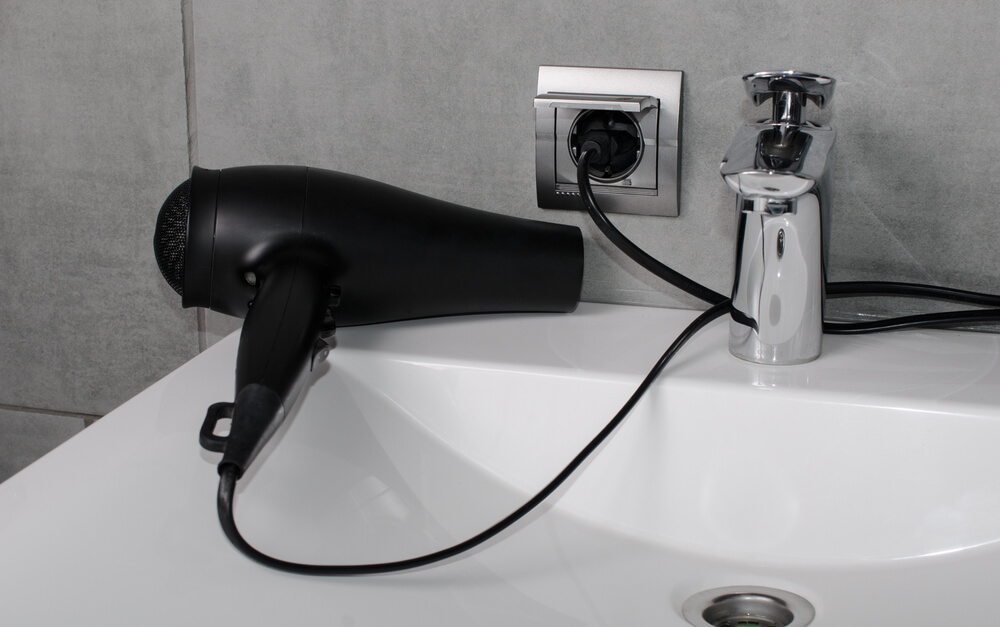
Though the dangers of electricity and bathwater are already well-known, particularly with hairdryers, there are other circumstances where electricity and water can meet that should be avoided.
- Don’t drink near electrical equipment as you may spill the liquid onto them.
- Don’t rest drinks on or near appliances either, something to be very mindful of if you’re hosting or at a party.
- Also be careful not to put toasters and similar appliances too close to the kitchen sink in case they fall in or water splashes onto them.
Turn of wall sockets when not in use

The wall socket power outlets provide direct contact to the electrical system in your home. To minimise the risk of something dangerous happening, make sure the switches are in the ‘off’ position when the outlet is not in use.
Also, it is far safer to turn the power off at the wall before unplugging a device. An additional measure that can be implemented with power points is to use child safety plugs to prevent objects being stuck into the outlet by children.
Avoid overloading power boards

Overloading power boards by plugging too many appliances into them is also a fire hazard. Consider unplugging any electrical equipment or appliances that do not need to be plugged in all the time, and optimise the usage of all the power points in the room wherever possible.
Read more: How To Avoid An Overloaded Power Outlet At Home
Avoid leaving hot appliances undetected
There are a number of fire hazards associated with certain electrical appliances that are multiplied when they are left unattended (doubly so if they have any electrical faults). Some of the more dangerous appliances include irons, heaters and toasters. There are also risks associated with unattended ovens and kettles as well. Keeping a close eye on hot appliances will also reduce the risk of children hurting themselves with them.
Keep an eye out for water leaks
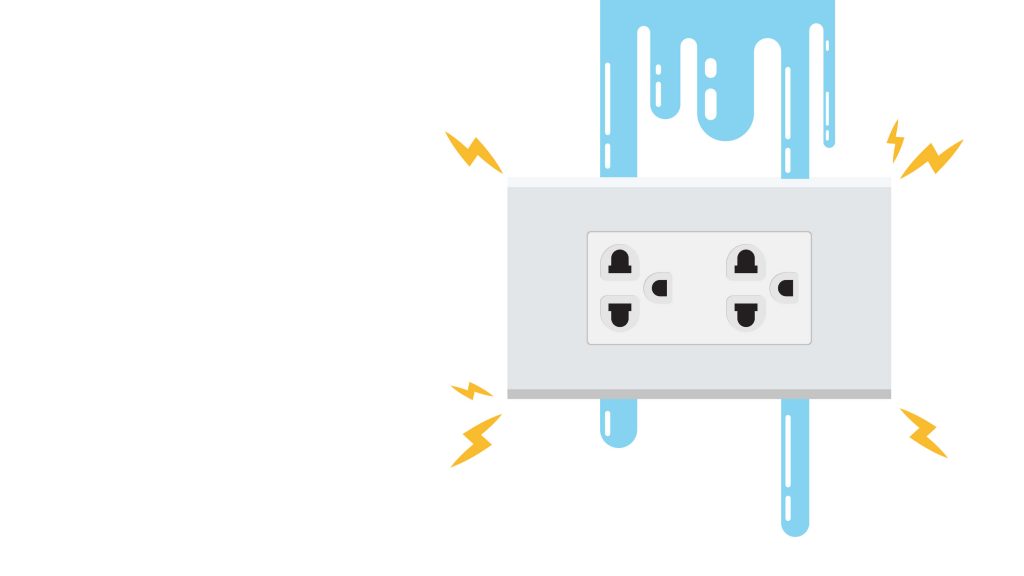
With the dangers of water and electricity well-established, it should be no surprise that a water leak in your home poses problems relating to electrical hazards. You can spot a roof leak by a discoloured spot appearing on your ceiling. Wall leaks can be identified by a damp feeling and peeling/crumbling wall plaster/wallpaper. These issues are best resolved by a plumber, rather than an electrician.
You should also occasionally take a walk outside and inspect the exterior of your house for any cracks or places water could leak in. This is best done before the rainy winter months.
Dust your electrical appliances
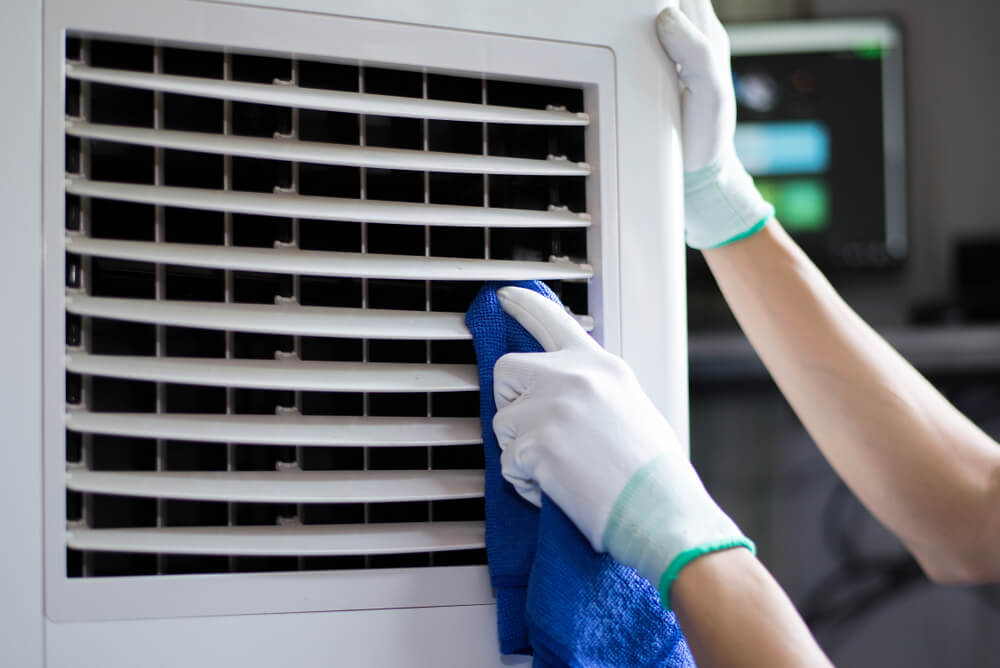
Dust is everywhere, as any person with a display of any kind will be quick to tell you. As dust builds up on an appliance’s surface, it can reduce the ability for heat to transfer into the air. This will cause your appliance to run hotter, a fire hazard in itself, and make it harder to cool the house in summer.
Be careful when drilling into walls

Electrical wiring, gas and water pipes all run through the walls of your home, and drilling into any one of these poses an electrical risk. Though it can be difficult to find exactly where these are, there are some ways to help narrow it down.
- Power outlets and light switches will have electrical wiring going to them. Avoid drilling near these.
- Bathroom and kitchen walls are far more likely to house pipes and wiring.
- Use a stud finder. This will help you find the wooden beams in the walls that keep the house stable.
However, when in doubt, it’s always best to call a qualified electrician. There are dangers associated with DIY electrical work. An electric shock is a serious matter and avoiding one should not be left to chance.
Have a CO2 fire extinguisher in the house
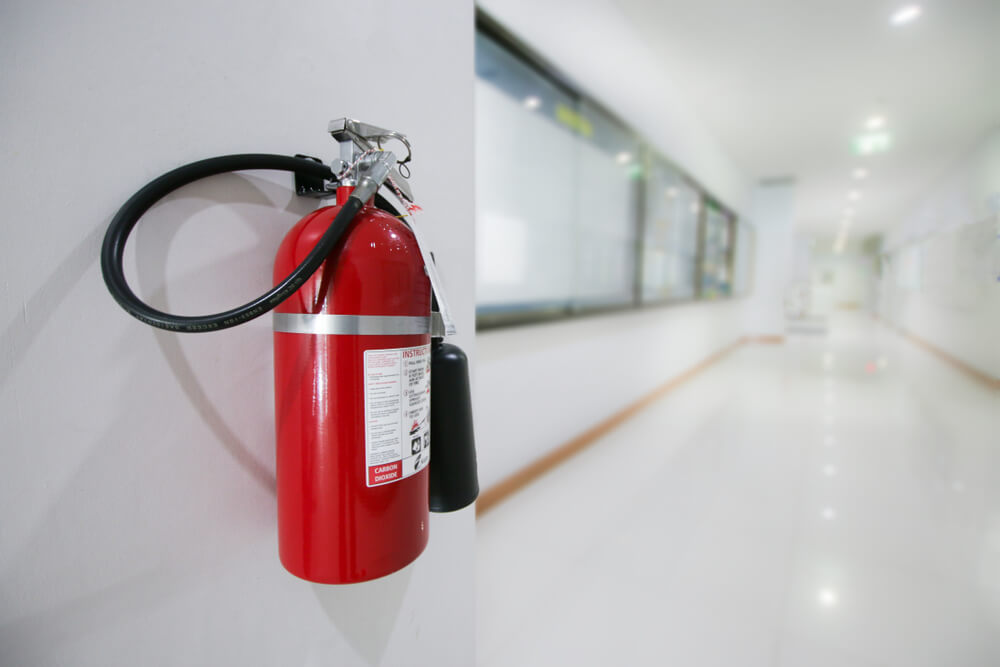
Water is very ineffective against electrical fires (and grease fires too, for that matter), and might even make them worse. As such, regular water fire extinguishers will not be suitable for these fires. Carbon dioxide fire extinguishers, meanwhile, are rated for electrical fires, so you should have at least one of these in your home.
Teach your family
These tips will be far more effective if everyone in your home is dedicated to implementing them. Teach children the importance of electrical safety from a young age, and ensure they grow up in a safe home.
Talk to your local electrician
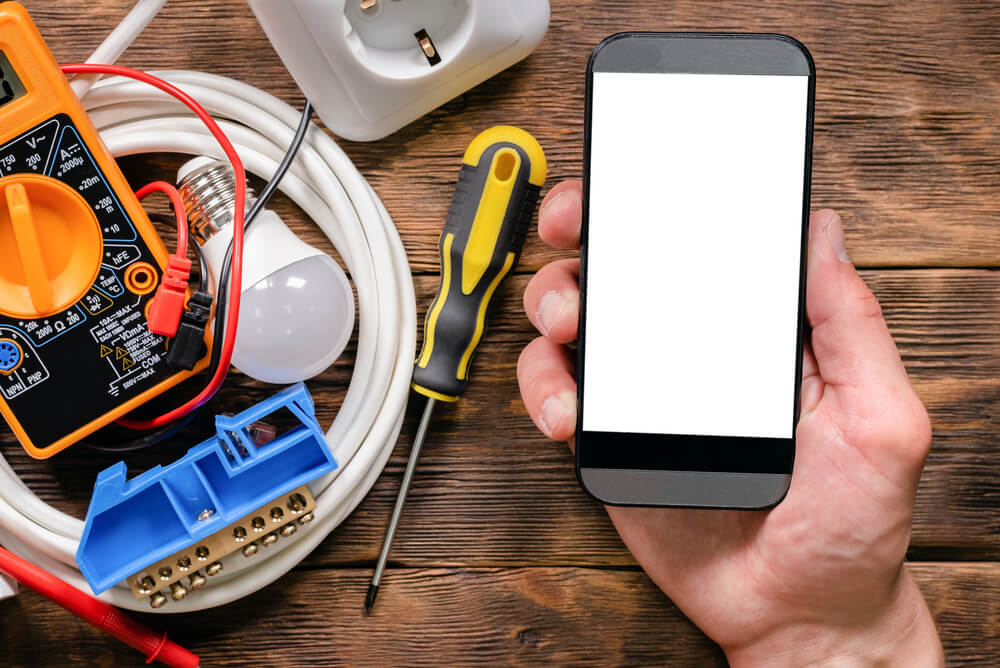
Of course, there are more involved things you can do, and your situation might have some unique options. Talk to a local licensed electrician today to arrange an electrical inspection of your property for a more in-depth look with more personalised electrical safety tips.And always remember, never try to DIY electrical faults. Call a qualified residential electrician like Prime Time on 1300 356 200 if you need any electrical repairs in Perth done.